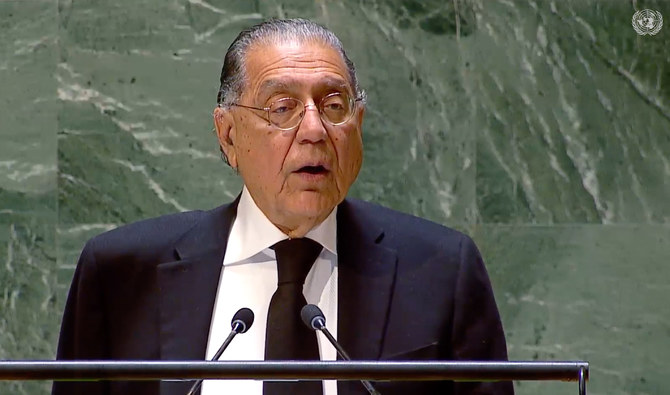ISLAMABAD: The United Nations General Assembly adopted a resolution on Friday, presented by Pakistan on behalf of the Organization of Islamic Cooperation (OIC), calling for measures to combat Islamophobia that it said regularly manifests itself at both societal and state levels.
The resolution, advocating for the appointment of a special envoy to address the issue, coincided with International Day to Combat Islamophobia, observed on March 15. This date commemorates the anniversary of the Christchurch mosque shootings in New Zealand, where 51 worshippers were killed during Friday prayers.
The initiative to establish a day against Islamophobia was also spearheaded by Pakistan for the OIC and unanimously approved by the 193-member world body in 2022, with support from 55 predominantly Muslim countries.
Pakistan’s chief diplomat at the UN, Ambassador Munir Akram, introduced the follow-up resolution, emphasizing that Muslims globally continued to encounter significant discrimination, despite international acknowledgment of Islamophobia’s prevalence.
“Islamophobia is as old as Islam itself,” he said while addressing the world body. “It was generated by atavistic fears and prejudice. It was manifested by the racist colonization and brutalization of much of the Islamic world in the past few centuries.”
Akram noted the problem became more pronounced after the September 11, 2001, attacks in New York and Washington.
“Despite the General Assembly’s adoption of the resolution on Islamophobia two years ago … the incidents of Islamophobia, of discrimination, prejudice and violence against Muslims and all that they hold sacred have risen exponentially both at the societal and state level,” he continued.
The Pakistani diplomat said Muslims were discriminated against in the immigration policies of various countries and faced travel bans to different parts of the world. He also described the ongoing war in Gaza and the refusal of western countries to call for an immediate ceasefire as manifestations of the same problem.
Akram noted Muslims faced hateful acts like the desecration of the Holy Qur’an, pointing out that seven such incidents had been recorded in last year alone.
“For those who adhere to the principles of inter-religious and inter-cultural harmony, it is entirely evident that bold and decisive actions are needed to counter and combat Islamophobia,” he said. “This is also the purpose of the draft resolution.”
He noted that Muslims did not agree that deliberate acts of burning and desecration of their holy book could be justified in the name of freedom of expression, adding the OIC had also consistently called for the criminalization of such acts.
The Pakistani diplomat said it was important for the UN to appoint a special envoy to tackle the worldwide issue of hatred against Muslims and their religion while highlighting the demand made in the resolution.
Pakistan’s Permanent Mission to the United Nations later announced the success of the resolution in a social media post.
“In a major development,” it said, “the UN General Assembly just adopted the Resolution on ‘Measures to Combat Islamophobia’. The resolution, inter alia, calls for the appointment of the UN Special Envoy to combat Islamophobia. Pakistan facilitated the resolution on behalf of the OIC.”












